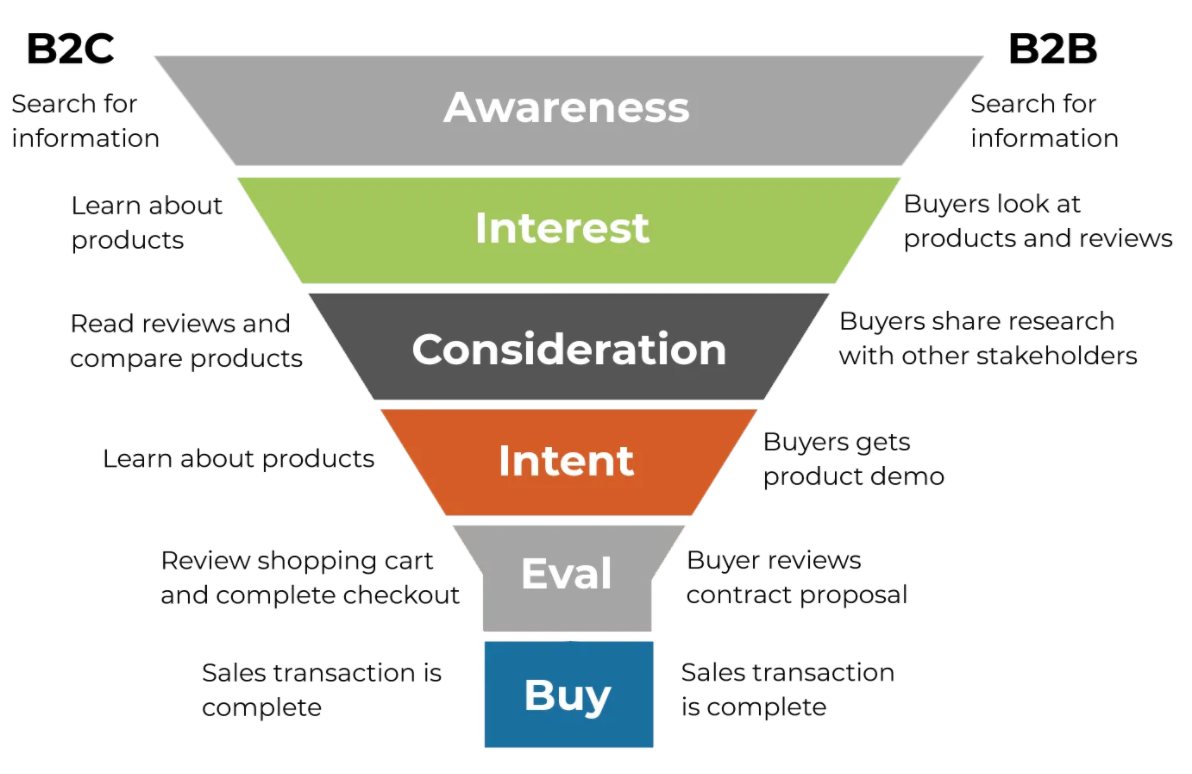Say you're a farmer that owns a large potato farm, and you're trying to figure out how you want to sell your product. You have two common options for sales. The first option is that you can sell bags of potatoes to individual customers through an online store or local farmer's markets. The second option is to sell to a business, or partner with large wholesale outlets such as grocery stores and sell your potatoes in bulk.
Of course, both ways of selling have pros and cons. Deciding which way of selling really depends on what your goals are for your business!
B2C - Business to Consumer: sell products directly to the end-user (this would be the farmer selling their products through local farmers' markets, or online to household customers).
B2B - Business to Business: sell products to other businesses (this is where a farmer would sell their products to a restaurant or wholesaler).
If you aren’t sure which direction your business should operate in, here are some differences between the two:
Marketing
One of the key differences between B2B vs. B2C involve marketing. As consumers, we typically purchase small batches of products in regular intervals - whereas businesses will purchase in bulk.
The image below really captures the differences between what you as a producer would want to think of when marketing your products.

Middle of the Funnel (MOFU)
This is area of consideration for producers looking at both B2B and B2C options. As you can see with the diagram above, the middle of the funnel can be drastically different between the two channels.
B2C customers' MOFU activities might cover things like reading reviews online, consulting with friends, and possibly a couple of visits to your website.
For B2B customers, MOFU activities would most likely involve competitive analysis, pricing negotiation, discussion with internal stakeholders, and viewing product demos. The other factor to consider is that if you are selling to wholesalers/other businesses you might need to meet in person to show new items - especially if they are high priced.
Keep this in mind when deciding on whether B2B or B2C (or both) is best for your business.
Bottom of Funnel (BOFU)
Similar to the MOFU, BOFU is a part of a customer's purchasing decision matrix. However, it is towards the end of the sales funnel.
Selling your products through a B2C channel would likely require making sure users have a smooth check-out process online, fast delivery times, and a memorable user experience. You should always want this in your e-commerce website anyways, but these are a part of the factors that will help turn visitors into paying customers.
Selling your products through B2B would entail businesses looking at large purchase decisions in order to close a deal. The partnership would likely entail proposals, defining payment terms, and completing service agreements - before any transaction takes place. However, this can be a one-off process - after which you'll have a steady, dependable queue of orders.
Final Takeaways
There are many differences in B2B selling vs. B2C selling that you should make sure to take time to research before choosing which direction best suits your business. We believe the information on the various sales funnels is very important as it does change how you may operate your business as a whole.
But one thing is common across both - the desire for reliable products at a good price. Whether you are operating in a B2B or B2C chain, your goal should be the same; provide the best service possible for your customers.
If you're ready to get started on your B2C store or B2B platform, Freshline offers a fast, easy-to-use alternative to launch your online presence.




